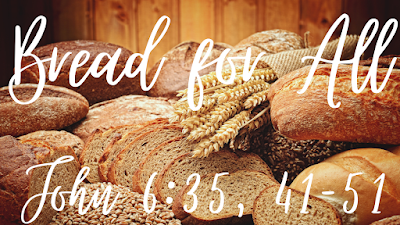Everyone Who Belongs - John 18:33-37 (Christ the King, Year B)
What is truth? That is Pilate’s next sentence after the reading today. Pilate wasn’t the first to ask it, and we’ve been asking ever since. The essence of truth is such a vague question that it wields a complete spectrum of answers. Is the Bible true? Is Jesus true? How do we know? I know these are pretty fundamental questions of faith, but sometimes we need to start at the beginning to build that foundation on which the rest of our beliefs rely. This reading is only four verses, but there’s so much here to unpack, so let’s go.
Today is the Reign of Christ Sunday. It is the last Sunday of the year before Advent. For a bit of history, Pope Pius XI created the feast day in 1925. He did it to curb the smoking kindling that was starting to burn through Europe. This year is the same time in the United States that Calvin Coolidge is president; the middle of the so-called “Roaring Twenties” was happening, the split right between the Prohibition years, when alcohol was illegal. March 31st of the same year, WOWO here in Fort Wayne began broadcasting for the first time, with the technology in its infancy. My grandparents were all about ten years old at this time, to make it personal. The Pope was worried about the rise of nationalism and secularism. This era was one of great political and social movements. Hitler, Mussolini, and Stalin began their movements to shape world affairs for decades to come.
For the last few weeks, we’ve been focusing on Mark chapters 12 & 13 and his approach to Jesus’ life by arguing with religious leaders, making examples of faithful yet impoverished servants, and destroying the temple.
But this week, the lectionary switches gears and sends us into John 18. It’s now later in the same week, the Holy Week texts. Hopefully, since it was read earlier, you’ve gotten yourself back into a Lenten headspace.
Jesus and Pilate are one of the great conversations in the New Testament. The other gospels do a great disservice to the exchange, yet our friend John fills in the gaps left behind. The other gospels have Jesus remain passive, refusing to answer questions from the Roman governor, the one who believes he has all the power in these discussions with the might of Rome behind him.
Each of these guys is coming from a different perspective, so it seems that they’re both on trial here. From the Roman perspective, Jesus doesn’t appear plainly as a king, but yet there’s a mob claiming that he is. Why is this important to Pilate? Nobody wants their authority questioned. As the highest-ranking politician in a majority-minority group occupied territory, he wants to make sure no one will try to overtake the authority he’s been given. He wants to suppress dissent and make sure that his power is in control.
So the initial question that Pilate asks seems a fundamental yet straightforward question - who are you? Now, Jesus knows who he is, and so when Jesus answers in kind of a backhanded way, I’m sure it threw Pilate off, confusing and complicated what seemed to be an easy trial. I mean, Jesus has many angles to be coming from because he is a Jew in a Roman world, both of whom seem to be rejecting him; at the same time, paradoxically, he claims that he IS a king, but his kingdom is not of this world.
In the verse that is the title of the sermon today, number 37, Jesus says, “Everyone who belongs to the truth listens to my voice.” Other translations use slightly different words, like in the NIV, which says, “Everyone on the side of truth listens to me,” and the Living Bible translation says, “All who love the truth are my followers.”
What Pilate is missing - he sees truth as an empirical pursuit - what he can see, hear, touch, feel. But what Jesus is saying the truth is - relates to the first chapter of the Gospel of John. “In the beginning was the word, and the word was with God, and the Word WAS God… the word became flesh (in Jesus Christ) and made his dwelling among us. We have seen his glory… the one and only, who came from the Father, full of grace and TRUTH”.
All of us at one point or another have been Pontius Pilate - lost in our search for truth in what we can experience, but have you ever leaned into the Truth of Jesus Christ through revelation about things more significant than your own experiences? Jesus’ ministry was about revealing God’s Kingdom to us, even, and maybe especially, amongst those who were unworthy. Pilate didn’t need to nail him to the cross personally, yet he still bears responsibility. Pilate considered Jesus, an enemy. But Jesus didn’t think that Pilate was an enemy - in fact, it seems as though that Jesus was ministering him, even as he ordered Jesus to be beaten, tortured, and sent to die, even as Pilate knew he was innocent.
How can living in the truth of God’s kingdom help us to live a life that matters?
This Sunday before Thanksgiving, we come humbly to the Great Table of Grace and sit in the truth that Jesus is Lord and Savior of us all. What does that mean? Jesus does not rule over us as an authority, although some denominations might think so. Jesus leads with love, trust, and greater belonging than any earthly group or tribe could manage. When we say that God’s Kingdom is what matters, we do not deny the reality that we live in a multicultural world but that all those around us are also creations of the same divinity who created us. Our God has higher wisdom than any of us may collectively have.
A life that matters welcomes all find things to learn from others. The deeper we create communities that span the intricate bridges of life, the deeper our understanding of God becomes. Do you want a God who looks, sounds, behaves like us? If that’s the case, are you worshipping God or something else?
As I’ve said before and will continue to say, you will not look in the face of someone whom God doesn’t love. We are all sinners, and all of us do not deserve the grace that God offers. But when we accept that grace, that is true freedom. Freedom to realize that our lives are nothing without that grace given to us. Freedom to act closer to how Jesus will when sharing the grace with others. Some Christians believe that space is in controlling others for what they do. Jesus doesn’t condemn Pilate for what he knows Pilate needs to do. Jesus doesn’t ask to be taken to Rome to speak to the Emporer. He was offering Pilate the Good News and the Truth of Salvation, even though he would be condemned to death and suffering.
What does this mean for a stewardship message today? This seems like a strange connection to be made. But it works - we need to know who our authority is, and who we are serving and being served by, so we can give without reservation, maybe even audaciously. We spoke of the widow two weeks ago, saying that she put in all the money she had to live on in the offering. Last week, we discussed how that the structures that we build, physically and socially, may crumble to rubble over the course of time. This week, we are given in the hardest of situations, on trial with Pilate, that there is hope in God’s Kingdom, and the truth that is revealed to us in Jesus Christ. He came to serve, not to rule. He came to return honor to the least of these, to elevate the needs of the weakest so everyone who belonged could benefit. Bringing joy to those who were otherwise hopeless is just one example of living a life that matters. Being in community with those who bring you hope, love, and joy - isn’t that worth persuing?
Stewardship shows us what’s possible when we give of our time, talent, money, and our witness. More than financial resources, the effort of reaching out to the community during Study Connection, our Scouting programs, and other events like Caramel Corn and Treat Trail, are seeds that we are planting in the field of faith that we may not see pop out of the soil and bloom, but that doesn’t lessen the need for those programs.
As I wrote earlier this month, Bethany Church is blessed to be able to still meet and worship in the ways we do. Each of us believes that God’s Good News of grace has changed us. Thank you for all the faithful giving you’ve offered. I pray that I can be the steward to use those gifts and talents for the glory of the Lord. I have a vision for Bethany church over the next year, and I’m still grateful to the Bishop for placing me here.
We begin a new season next week, with Advent. May we hold the sacrifice of Christ from the text today and yet also anticipating the birth of the Holy Child in tension while we are grateful for the lives we have been given during this week of gratitude. This also holds the truth of the Gospel in it as well. I hope each of you find that truth, love, and peace that the Lord offers.
Amen.




Comments
Post a Comment